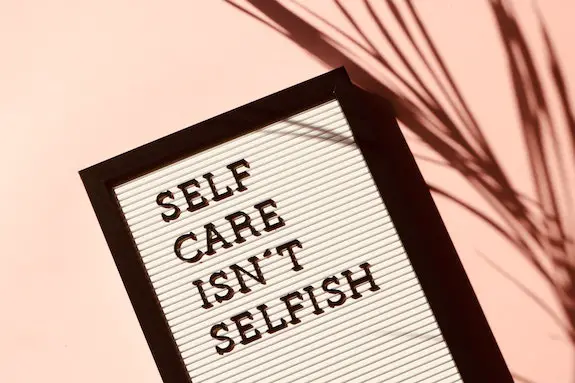All too often caregivers place the majority of their focus on taking care of others while neglecting themselves. If you’re the family caregiver, then this is for you.
The heart, soul, and energy that a caregiver devotes towards caring for others is nothing short of spectacular, but in order to sustain that level of devotion to others, you must first take care of yourself. Taking time out for YOU isn’t selfish; in fact, self-care will equip you with the ongoing energy, mental alertness, and a healthy life-balance so you can continually provide care to others.
Caring for an elderly parent is rewarding and fulfilling, yet it also requires a lot of attention and hard work, and can oftentimes be quite emotional. Statistics indicate that 60% of caregivers suffer from depression and frequently take prescribed medications for anxiety, chronic pain, and more.
Research indicates that caregivers who refuse to place importance on self-care often develop health problems that include diabetes, heart disease, high blood pressure, substance abuse, and weight gain. However, you can reduce your risk by implementing these simple self-care actions.
Set Personal Boundaries
We all need our space and setting personal boundaries will make room for renewal time. Ask for help from other family members and share in the caregiving responsibilities. Allowing yourself a break on a regular basis will help you to re-energize and maintain a well-balanced life.
Make Healthy Choices
It is a known fact that stress will wreak havoc on your body and causes an overabundance of cortisol in your system. Too much cortisol can lead to damage of your major internal organs and result in disease. Additionally, stress and anxiety are major culprits in sleep deprivation. When you don’t get an ample supply of sleep, you are more likely to develop heart issues, depression, and experience hormonal imbalances that can lead to mood swings, lowered libido, and increased hunger that causes overeating and weight gain.
Choose to be healthy by making time for regular exercise, avoiding tobacco and alcohol, eating nutritious foods instead of processed foods high in sugar and carbs, and managing stress by engaging in something enjoyable; whether it is a solitary walk in the woods, or a fun activity with family or friends.
Indulge on Occasion
It’s also highly encouraged to allow yourself indulgences on occasion too. There are several options to choose from that will fit any budget. Whether it is a soak in the tub with your favorite essential oils, enjoying a favorite book, window-shopping at your favorite store, or spoiling yourself with a massage or spa day. When you care for yourself first, then you’ll have the energy and be in the best state of mind possible to care for those who depend on you.
Ask for Help
While caregiving is rewarding it is not easy. Depending on the health of the person you are caring for, you could essentially be “on call” 24/7, while still juggling other responsibilities like work, finding time for your spouse, and nurturing your children. Assess the situation on a regular basis and for the sake of your loved one and you, never hesitate to ask for help when necessary.



